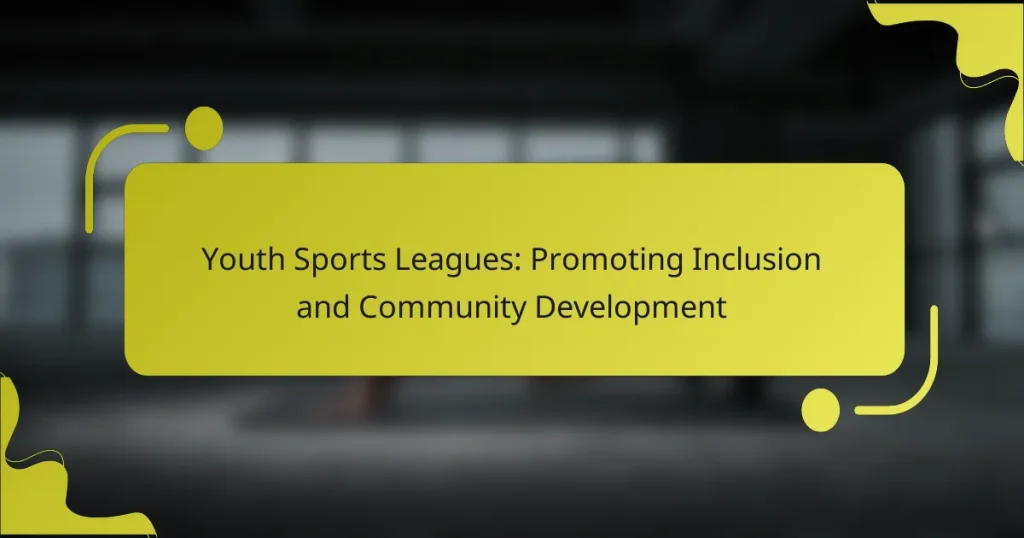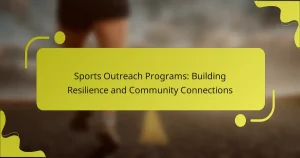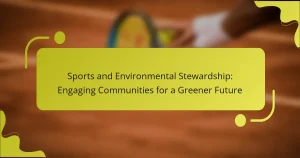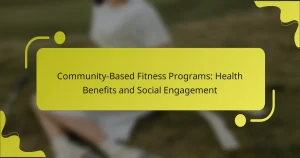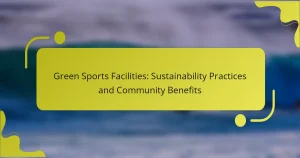Youth sports leagues play a crucial role in promoting inclusion and community development. They enhance social skills, teamwork, and self-esteem among participants. These leagues also foster community engagement and volunteerism, creating stronger support networks. Additionally, unique programs like adaptive sports and mentorship initiatives ensure accessibility and personal growth for all youth involved.
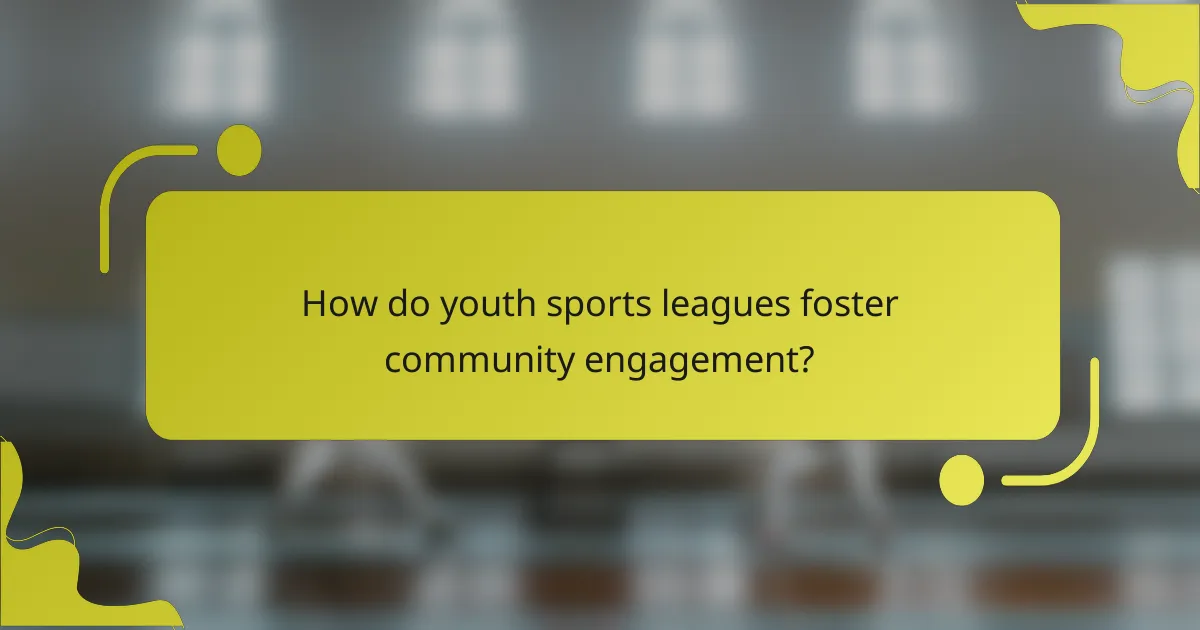
How do youth sports leagues foster community engagement?
Youth sports leagues foster community engagement by creating inclusive environments that bring together diverse groups. They promote social interaction, teamwork, and local pride. Participation in these leagues enhances community bonds and encourages volunteerism, leading to stronger support networks. As a result, families and individuals feel more connected to their neighbourhoods, fostering a sense of belonging.
What role do volunteers play in youth sports leagues?
Volunteers play a crucial role in youth sports leagues by providing support, mentorship, and resources. They help organise events, coach teams, and foster a positive environment for young athletes. This involvement promotes community development and enhances inclusion among participants. Volunteers contribute their time and skills, ensuring that leagues operate smoothly and that all children have access to sports opportunities. Their dedication often leads to improved youth engagement and social cohesion within the community.
How do youth sports leagues promote social skills among participants?
Youth sports leagues foster social skills by encouraging teamwork, communication, and conflict resolution among participants. Through collaborative play, children learn to work together towards common goals, enhancing their ability to interact positively with peers.
Participation in these leagues often involves diverse groups, promoting inclusion and understanding of different backgrounds. As a result, youth develop empathy and respect for others, crucial components of social skills.
Additionally, leagues provide structured environments where children can practice leadership and decision-making. These experiences build confidence and improve their ability to navigate social situations effectively.
Research shows that youth involved in sports are more likely to exhibit strong social and interpersonal skills, contributing to their overall development.
Which partnerships enhance community involvement in youth sports?
Partnerships with local schools, non-profits, and businesses enhance community involvement in youth sports. These collaborations provide resources, funding, and volunteer support, fostering an inclusive environment. Schools often host events and offer facilities, while non-profits engage diverse populations. Local businesses can sponsor teams, creating a sense of community ownership and pride.
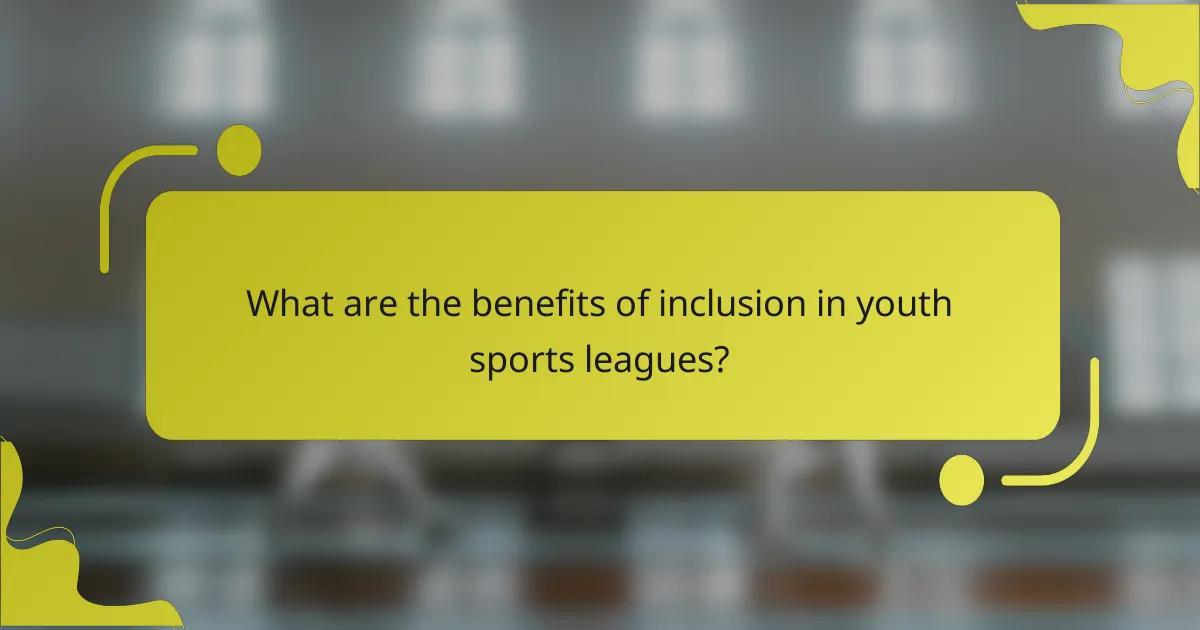
What are the benefits of inclusion in youth sports leagues?
Inclusion in youth sports leagues fosters social skills, teamwork, and self-esteem among participants. It promotes diversity and creates a sense of belonging, enhancing community ties. Studies show youth involved in inclusive sports report higher satisfaction and lower dropout rates. Additionally, inclusive environments encourage empathy and understanding, preparing youth for diverse social settings.
How do inclusive practices improve player well-being?
Inclusive practices enhance player well-being by fostering a supportive environment that promotes social connections and self-esteem. These practices ensure that all participants feel valued, reducing feelings of isolation. For example, research indicates that inclusive youth sports programs lead to increased participation rates and improved mental health outcomes. Additionally, players report higher satisfaction levels when they are part of diverse teams, which can lead to lifelong friendships and community ties.
What impact does diversity have on team dynamics?
Diversity positively impacts team dynamics by enhancing collaboration and creativity. Diverse teams bring varied perspectives, leading to innovative solutions. Inclusion fosters a sense of belonging, improving team morale and performance. Research shows that diverse groups outperform homogeneous ones, with a 35% higher likelihood of achieving above-average financial returns. This dynamic promotes community development by encouraging participation and engagement in youth sports leagues.
Which challenges do leagues face in implementing inclusion?
Youth sports leagues face several challenges in implementing inclusion. These include limited resources, resistance to change, and lack of awareness about the benefits of diversity.
Insufficient funding often restricts the ability to create inclusive programs and facilities. Resistance from stakeholders, including parents and coaches, can hinder the acceptance of diverse participants. Additionally, many leagues struggle with educating their members on the importance and advantages of inclusion, which can lead to missed opportunities for community development.
Addressing these challenges requires strategic planning and commitment to fostering an inclusive environment that values diversity in youth sports.
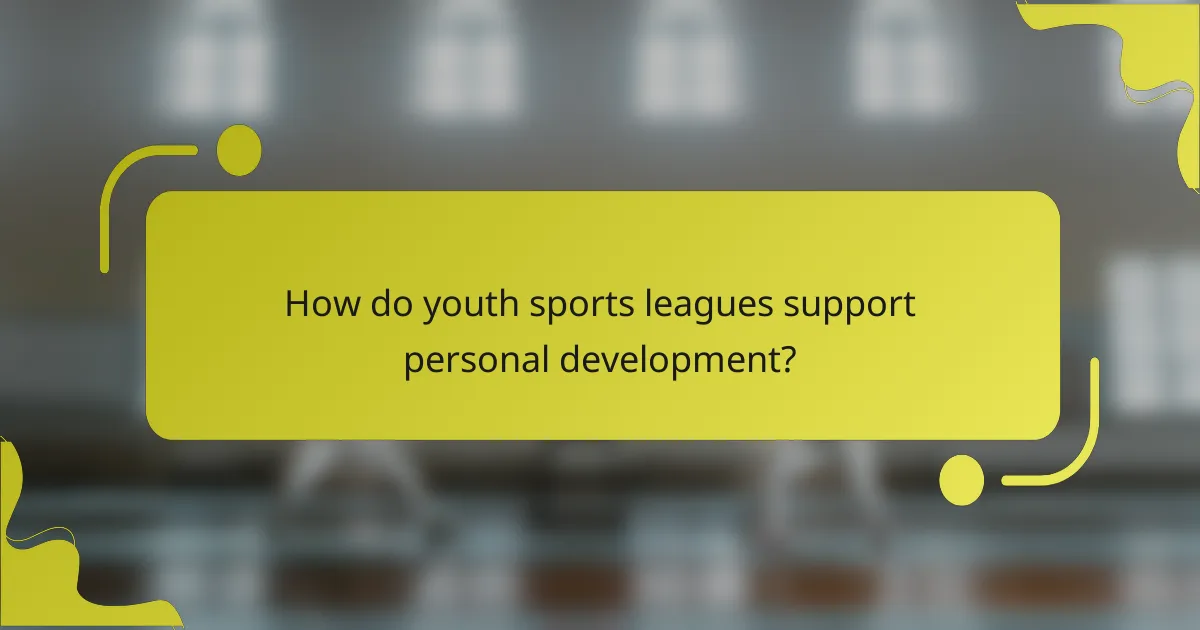
How do youth sports leagues support personal development?
Youth sports leagues significantly enhance personal development by fostering teamwork, discipline, and leadership skills. Participation in these leagues encourages youth to set goals and work collaboratively towards achieving them.
Engagement in sports builds resilience, as young athletes learn to cope with wins and losses. This experience translates into valuable life skills, such as perseverance and emotional regulation.
Moreover, youth sports leagues promote inclusion by welcoming diverse participants, which cultivates empathy and social awareness. This unique attribute of fostering a sense of community helps youth develop important interpersonal skills.
In summary, youth sports leagues serve as a vital platform for personal growth, equipping young individuals with essential life skills that extend beyond the playing field.
What skills do children develop through participation in sports?
Children develop teamwork, discipline, leadership, and social skills through participation in sports. Engaging in youth sports leagues fosters a sense of community and belonging. Teamwork is crucial as children learn to collaborate towards common goals. Discipline is cultivated through practice and adherence to rules, enhancing focus and commitment. Leadership skills emerge as children take on roles within their teams, promoting confidence and decision-making. Social skills improve through interactions with peers, helping children build friendships and navigate diverse social settings. Overall, youth sports leagues significantly contribute to holistic child development.
How do youth sports leagues teach resilience and teamwork?
Youth sports leagues teach resilience and teamwork by fostering collaboration and problem-solving among participants. Through shared goals and challenges, young athletes learn to support one another, enhancing their ability to cope with setbacks. This environment encourages effective communication, builds trust, and develops a sense of belonging, vital for community development. Engaging in competitive scenarios helps youth understand the importance of perseverance and adaptability, essential traits for personal growth.
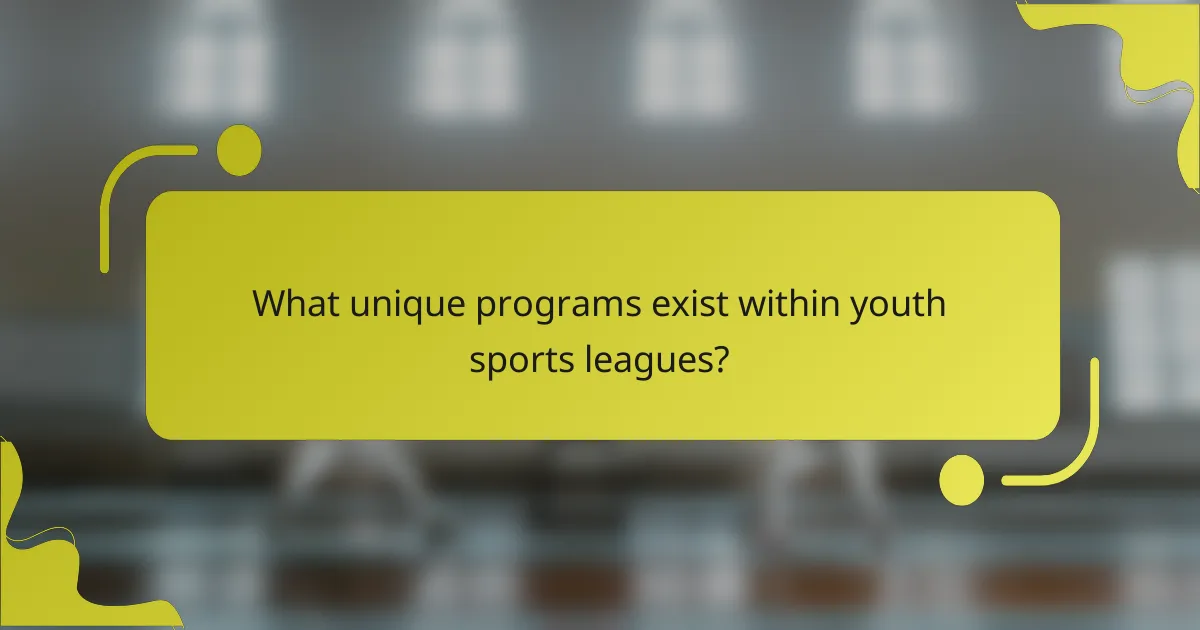
What unique programs exist within youth sports leagues?
Unique programs within youth sports leagues include adaptive sports, mentorship initiatives, community service projects, and skills development clinics. These programs promote inclusion, foster teamwork, and enhance personal growth among participants. For example, adaptive sports programs cater to children with disabilities, ensuring accessibility and participation. Mentorship initiatives connect young athletes with role models, enhancing their sports experience and personal development. Community service projects encourage teamwork and civic responsibility, while skills development clinics focus on improving specific athletic abilities. Each program uniquely contributes to building a supportive and inclusive sports culture.
How do adaptive sports leagues cater to children with disabilities?
Adaptive sports leagues provide tailored programs for children with disabilities, promoting inclusion and community engagement. These leagues focus on accessibility, offering modified rules and equipment to accommodate various needs. Coaches are trained to foster a supportive environment, emphasizing teamwork and personal growth. Participation in these leagues enhances social skills, builds confidence, and promotes physical health among young athletes.
Which initiatives focus on underprivileged communities?
Youth sports leagues focus on underprivileged communities by providing accessible programs that promote inclusion and development. These initiatives often offer free or low-cost participation, ensuring that all youth, regardless of socioeconomic status, can engage in sports.
Programs like the Positive Coaching Alliance and local community centres emphasize mentorship and skill development, fostering teamwork and resilience. These leagues not only improve physical health but also enhance social skills and community cohesion.
Additionally, partnerships with schools and non-profits help expand outreach, ensuring diverse participation. As a result, youth sports leagues play a crucial role in empowering underprivileged communities through structured physical activities.
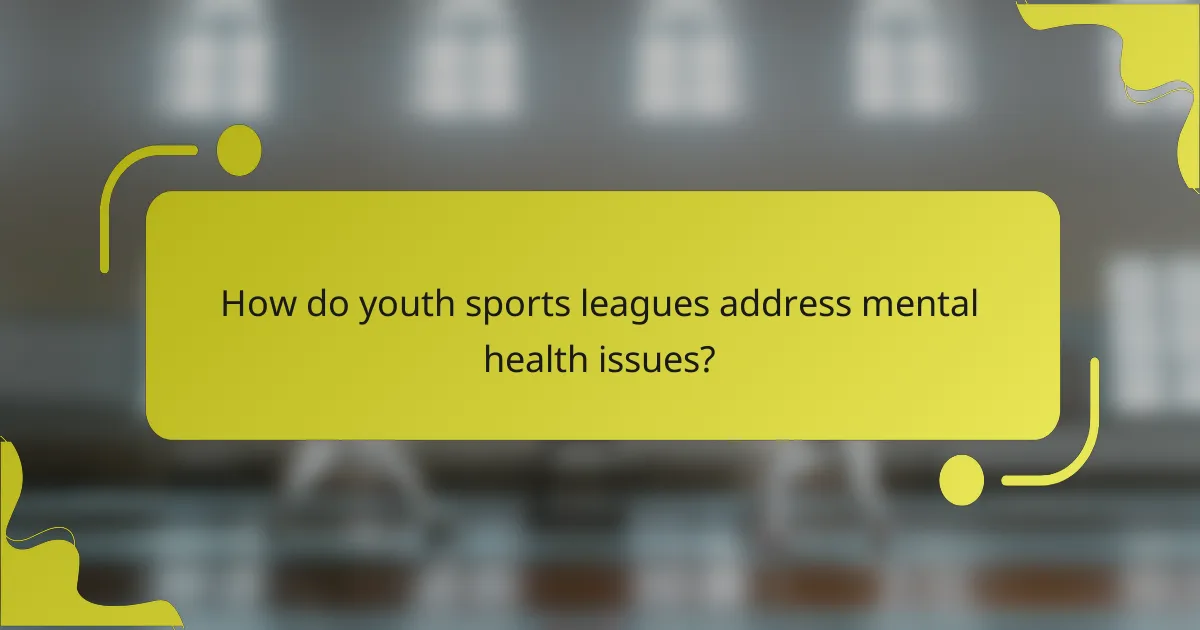
How do youth sports leagues address mental health issues?
Youth sports leagues address mental health issues by fostering a supportive environment and promoting community engagement. They provide structured activities that enhance social interactions, which can alleviate feelings of isolation. Programs often include mental health education for coaches and parents, emphasizing the importance of emotional well-being.
Additionally, leagues create opportunities for youth to express themselves and build resilience through teamwork and competition. Research indicates that participation in sports can lead to improved self-esteem and reduced anxiety among young athletes. By prioritising mental health, youth sports leagues contribute to overall community development and inclusion.
What resources are available for mental health support in sports?
Youth sports leagues offer various resources for mental health support, including counselling services, workshops, and peer support groups. These initiatives promote emotional well-being and resilience among young athletes. Many leagues partner with mental health organisations to provide access to professional resources and training for coaches. Programs often focus on creating supportive environments that encourage open conversations about mental health. Additionally, community events raise awareness and reduce stigma, fostering a culture of inclusion and understanding.
How can coaches be trained to recognize mental health concerns?
Coaches can be trained to recognize mental health concerns through education and awareness programs. These initiatives should focus on identifying signs of distress, fostering open communication, and promoting a supportive environment. Training should include workshops on mental health topics, resources for further learning, and strategies for engaging with athletes. Regular assessments and feedback can enhance the effectiveness of these training programs, ensuring coaches remain informed about evolving mental health issues in youth sports.
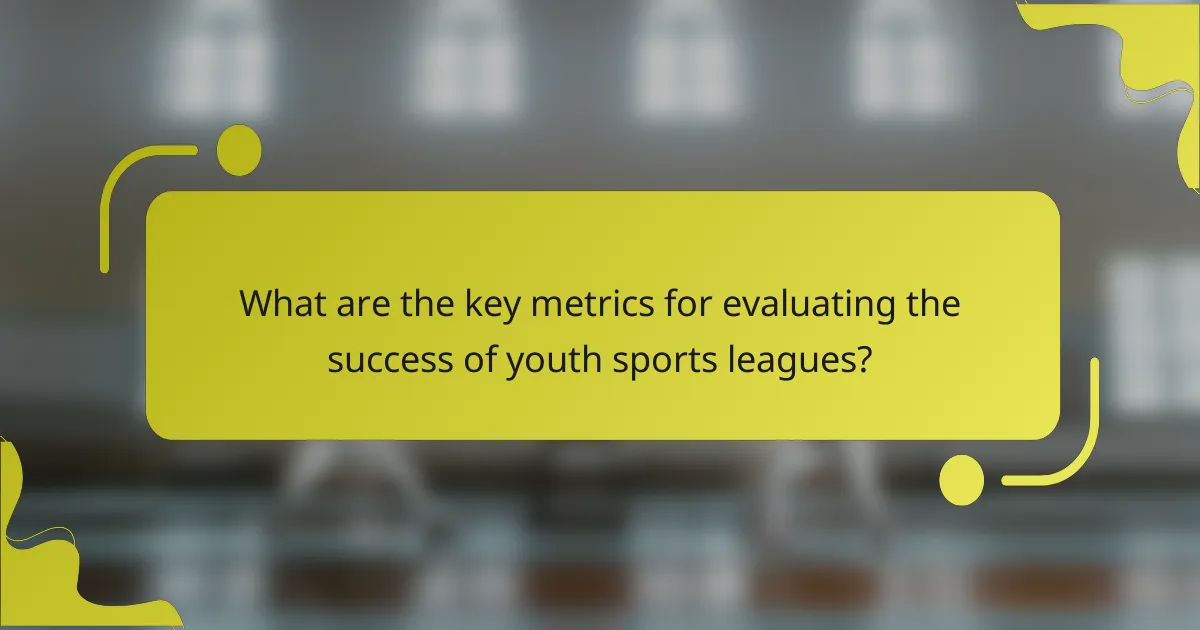
What are the key metrics for evaluating the success of youth sports leagues?
Key metrics for evaluating the success of youth sports leagues include participation rates, athlete retention, community engagement, and skill development. These metrics reflect the league’s effectiveness in promoting inclusion and fostering community development.
Participation rates measure the number of youth involved, indicating interest and accessibility. Athlete retention assesses how many players continue in the league over time, showcasing satisfaction and commitment. Community engagement evaluates the league’s impact on local involvement and support, which can enhance resources and opportunities. Skill development tracks athletes’ progress and improvement, highlighting the league’s ability to foster personal growth and teamwork.
How can participation rates indicate community health?
Participation rates in youth sports leagues reflect community health by indicating social engagement and inclusivity. Higher participation rates suggest a supportive environment that fosters physical activity and social connections. These leagues promote teamwork, reduce isolation, and enhance community cohesion. They also provide opportunities for youth development, contributing to overall community well-being. Engaged youth are more likely to develop healthy habits and maintain lifelong physical activity, positively impacting public health metrics.
What role does feedback from families play in league improvement?
Feedback from families significantly enhances youth sports leagues by fostering improvement and community engagement. Families provide valuable insights regarding player experiences, coaching effectiveness, and organizational operations. This feedback can identify areas needing enhancement, such as inclusivity or safety protocols. Engaging families in decision-making promotes a sense of ownership and strengthens community ties. As a result, leagues that actively incorporate family feedback often see increased participation and satisfaction among players and parents alike.
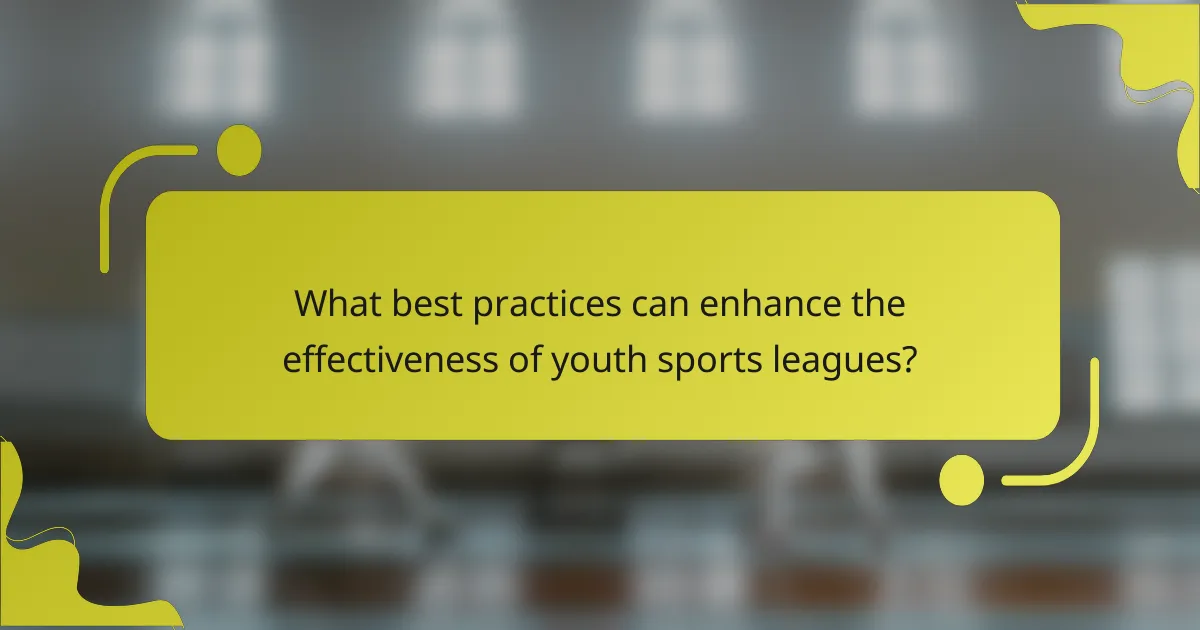
What best practices can enhance the effectiveness of youth sports leagues?
To enhance the effectiveness of youth sports leagues, focus on fostering inclusion, community engagement, and skill development. Implementing diverse programs encourages participation from various backgrounds. Establish clear communication channels to keep families informed and involved. Regular training for coaches on inclusivity and safety ensures a positive environment. Finally, create partnerships with local organisations to support resources and outreach, enhancing community ties.
How to create an inclusive environment for all participants?
To create an inclusive environment for all participants in youth sports leagues, prioritise accessibility and respect. Foster a culture of acceptance through training, diverse programming, and community engagement.
Encourage open communication among participants, coaches, and parents. Implement policies that address bullying and discrimination, ensuring everyone feels valued. Regularly assess and adapt league activities to meet the needs of all individuals, promoting equal opportunities for participation.
By embracing these practices, leagues can enhance community development and ensure that every young athlete thrives.
What strategies can improve volunteer retention and engagement?
Implementing effective strategies can significantly enhance volunteer retention and engagement in youth sports leagues. Prioritise clear communication to foster a sense of community and belonging among volunteers. Recognise and celebrate their contributions regularly to boost morale and commitment. Provide training opportunities that enhance skills and confidence, making volunteers feel more competent and valued. Establish feedback mechanisms to ensure volunteers feel heard and involved in decision-making processes.
How to effectively communicate with parents and guardians?
To effectively communicate with parents and guardians in youth sports leagues, prioritise clarity and openness. Establish regular communication channels, such as newsletters or meetings, to keep them informed about league activities and policies. Encourage feedback to foster a collaborative environment. Utilise inclusive language to promote a sense of community and belonging. Highlight the benefits of participation, such as skill development and teamwork, which resonate with parents’ values.
